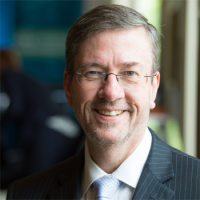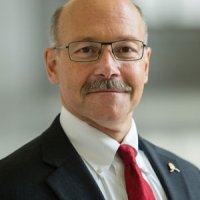Biden’s First International Trip: Expectations and Realities
President Biden's first international trip involves a cascade of summits -- the G7 in the UK; the NATO and U.S.-EU Summits in Belgium; and the U.S.-Russia Summit in Switzerland. Wilson Center experts discussed U.S. expectations for the Summits and their likely outcomes.
Event Snapshots
- As Biden embarks on his first international trip, the US needs to show that it is back with its closest partners and regain trust from the world at large, reaffirming its unity with NATO allies and restoring a sense of a working partnership with the EU.
- The G7 needs to show that multilateralism, alliances, and economic integration can produce results. It is therefore essential that the meetings are followed by practical and pragmatic consequences and effects.
- Strategic stability dialogue and functionality are central for a functioning US-Russian relationship. Arctic research can be a place of cooperation between the two states, and thereby a step on the way to building a more stable relationship.
Selected Quotes
Dan Hamilton. Director, Global Europe Program
"I think the White House is trying to project this message of renewed unity among leading like minded democracies. It's really a political message that the United States is back, its back with its closest partners, and together, those partners are trying to shore up their democratic resilience, their unity, and to sort of move the world from sickness to health on a variety of fronts."
"There'll be a I think a new emphasis on what's called resilience. That is all of the kinds of arteries that keep our free societies open are susceptible now to disruptive attack or change, you think about the malware attacks in the United States the ransomware, but also cyber activities, hybrid. All of that is creating a new imperative for allies to think about how to become more resilient. That's a new security dimension the Alliance hasn't really done as much on as it could. And I think they will be challenged to do more."
Shihoko Goto, Deputy Director for Geoeconomics and Senior Associate for Northeast Asia, Asia Program
"South Korea has been invited to be part of the g7 discussions as an observer country, but it's pretty much expected that there will not be a meeting between Prime Minister Suga, and President Moon Jae In on the sidelines, even though relations between South Korea and Japan are at an all time low and the United States depends heavily on solid relations between Tokyo and Seoul for regional stability. It is I believe a lost opportunity to enhance relations between the two countries. "
"The United States really does need to regain trust from the world, not just from the leaders of the world's richest countries but the world at large, and a demonstration that US commitments will not be reversed."
Abraham Denmark, Director, Asia Program
Watch a Clip
"I think that this has the potential to be the most consequential meeting of the G7 since after the attacks of September 11 2001, primarily because of the immense challenges that the G7 is facing and reacting to. We've already talked about what's been explicitly stated—the COVID 19 pandemic, the rise of China, and climate change. I think there's another challenge that the G7 is tacitly reacting to, and that is the Trump administration, and other populist movements counter to globalization and multilateralism that are happening in other parts of the world and especially in the G7."
"When I speak to Asian friends, especially amongst our allies and partners, there is a loud chorus of views looking for a positive US economic agenda for the Indo Pacific. We're not in the TPP, or the CP TPP as it is now……. So what is our economic agenda, what is our economic vision for the region that we are going to use to compete with the Chinese?"
Matthew Rojansky, Director, Kennan Institute
"This relationship is deeply fraught. There are any number of risk factors—around Russian cyber intrusions in the United States, the conflict in Ukraine, the crisis in Belarus, and any number of post-Soviet countries, as well as, of course, the internal situation in Russia, the treatment of the Russian opposition the independent press, which we've covered extensively and a recent series of Kennan Institute events. I think any of those things could potentially metastasize within the next week into the kind of crisis that would effectively make the summit pointless."
Mike Sfraga, Director, Polar Institute
"I do think that if both nations, especially the United States, are looking for places to actually cooperate with the Russians, like we do in the International Space Station, and trying to find a path towards some amount of productive engagement, I would argue that the Arctic may provide for us at least a few of those pathways to a more predictable and stable relationship between these two countries."
Speakers


President and CEO, US Russia Foundation



US Ambassador-at-Large for Arctic Affairs; Former Chair, US Arctic Research Commission
Moderator

Hosted By

Global Europe Program
The Global Europe Program is focused on Europe’s capabilities, and how it engages on critical global issues. We investigate European approaches to critical global issues. We examine Europe’s relations with Russia and Eurasia, China and the Indo-Pacific, the Middle East and Africa. Our initiatives include “Ukraine in Europe”—an examination of what it will take to make Ukraine’s European future a reality. But we also examine the role of NATO, the European Union and the OSCE, Europe’s energy security, transatlantic trade disputes, and challenges to democracy. The Global Europe Program’s staff, scholars-in-residence, and Global Fellows participate in seminars, policy study groups, and international conferences to provide analytical recommendations to policy makers and the media. Read more


Kennan Institute
After more than 50 years as a vital part of the Wilson Center legacy, the Kennan Institute has become an independent think tank. You can find the current website for the Kennan Institute at kennaninstitute.org. Please look for future announcements about partnership activities between the Wilson Center and the Kennan Institute at Wilson Center Press Room. The Kennan Institute is the premier US center for advanced research on Eurasia and the oldest and largest regional program at the Woodrow Wilson International Center for Scholars. The Kennan Institute is committed to improving American understanding of Russia, Ukraine, Central Asia, the South Caucasus, and the surrounding region through research and exchange. Read more


Indo-Pacific Program
The Indo-Pacific Program promotes policy debate and intellectual discussions on US interests in the Asia-Pacific as well as political, economic, security, and social issues relating to the world’s most populous and economically dynamic region. Read more


Canada Institute
The mission of the Wilson Center's Canada Institute is to raise the level of knowledge of Canada in the United States, particularly within the Washington, DC policy community. Research projects, initiatives, podcasts, and publications cover contemporary Canada, US-Canadian relations, North American political economy, and Canada's global role as it intersects with US national interests. Read more


Polar Institute
Since its inception in 2017, the Polar Institute has become a premier forum for discussion and policy analysis of Arctic and Antarctic issues, and is known in Washington, DC and elsewhere as the Arctic Public Square. The Institute holistically studies the central policy issues facing these regions—with an emphasis on Arctic governance, climate change, economic development, scientific research, security, and Indigenous communities—and communicates trusted analysis to policymakers and other stakeholders. Read more
